Recently I spent a week in Kinshasa observing our talented Girl Researchers. They were analysing their first sets of qualitative data collected as part of DFID DRC’s programme for adolescent girls, La Pépinière. Sixteen girls aged between 16 and 24, from diverse backgrounds, are being trained as qualitative researchers to form DRC’s first Girl-led Research Unit, inspired by the successful model developed by Girl Hub and 2CV in Rwanda.
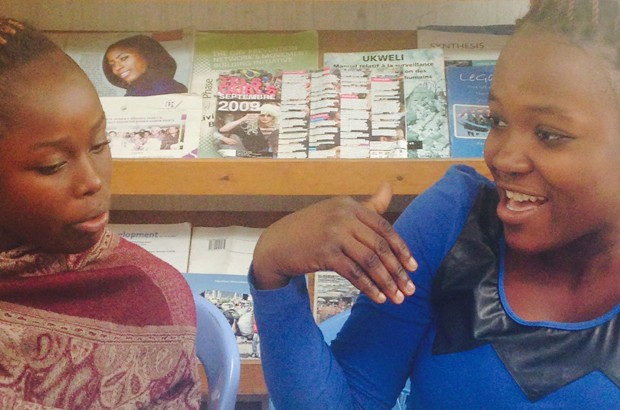
One of the biggest challenges in DRC is the lack of robust, reliable data - there hasn’t been a census since 1984. While there are a few national surveys (albeit of questionable quality) there are very few qualitative studies of the population and none at all on the situation or perceptions of young women and girls. So this research (which will collect 180 in-depth interviews) is a landmark occasion: the very first qualitative study about girls, led by girls. It will uncover what it means to be a girl in Kinshasa and what girls’ empowerment really means.
The Girl-led Research Unit (Unité des Filles Chercheurs) embodies the girl-led approach of La Pépinière, which aims to ensure girls’ realities are understood and integrated into the design of research, pilot projects and capacity building activities. The approach is grounded in our Girl Participation Principles:
- Meaningfully engage girls
- Reflecting girls’ diversity
- Valuing girls’ time and contributions
- Providing information to girls and gaining consent
- Building girls’ capacities and skills
- Working in empowering and transformative ways.
Under the expert direction of Social Development Direct, CERED-GL and a team of local researcher mentors, the girls have developed research questions and then been trained in interviewing techniques, data collection and analysis. Over the next two months, each girl researcher will conduct 3 in-depth interviews a week - with a girl of their own age, a younger girl and an influential member of the community. They have interviewed church leaders and teachers, and even a local pop-star.
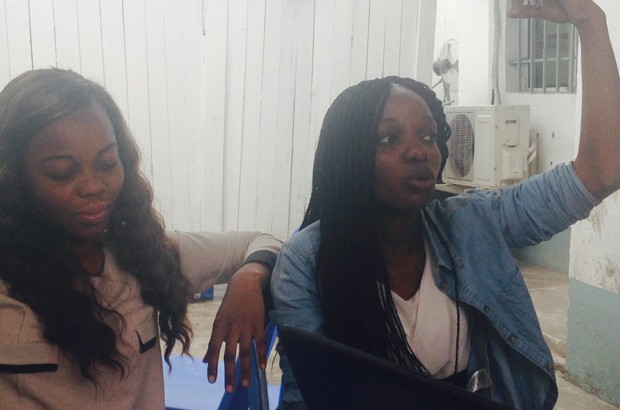
Because the girls come from a range of backgrounds and have various levels of education, research methods have been adapted to ensure everyone can participate. Using innovative aural techniques even less illiterate girls have been able to memorise the research guide and undertake interviews, recording them and analysing them in groups to draw out the key trends and surprising findings.
In my two days with them, we discussed a whole host of issues – from the positive and negative influence of the church on girls’ lives and the difficulty talking to male teachers (everyone will think you are his girlfriend), to ingenious ways of earning money through charging your parents for household chores and teaching salsa dancing to local kids. Something that has stuck me immediately is the huge contradiction between what adults and young people think about girls’ realities. Adults seem to think of them as ignorant, only interested in sex, money and boys – and constantly put pressure on girls to be ‘soumise’ (submissive).
Considering how little these girls and young women have been put in the spotlight or asked their opinion on anything, I have been so impressed by their confidence, enthusiasm and ability to get right to the heart of the issues affecting them.
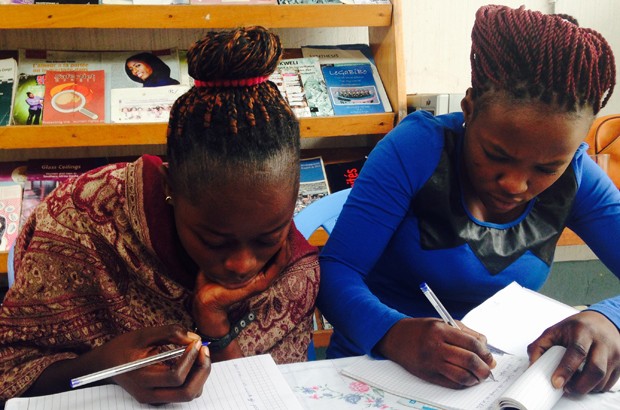
This research is unpacking what empowerment means for girls and women in Congo, to help us determine how to achieve it. And, importantly, the process of the research is empowering in itself. Already we have seen the confidence of less-educated girls soar. Our hope is that the findings will teach us much more about the discriminatory views, norms and practices that impede girls’ development. We hope it will encourage more donors, partners and the government will use our research and develop youth-led research themselves.
Given that 61% of DRC’s population are under 20, youth need to be made far more visible - they need to voice their opinions, exercise their right to be heard and have their needs met. But judging by the hugely capable, opinionated and smart young people I have been lucky enough to spend time with in DRC, the future of this country is bright.
Meet the Girl Researchers
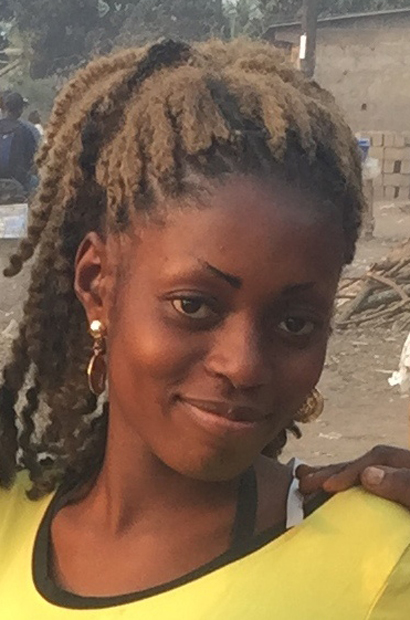
“My name is Belfanie. I am 22 years old and have a 3 year-old son. I live with my mother, grandfather and my older sister. I went to primary school but stopped my studies in the third year of secondary school. I would like to continue studies in bio-chemistry but it isn’t possible because I don’t have enough money.
"I work as a hairdresser and tailor. I love to style hair. My ambition is to become a successful business woman. I am a La Pépinière girl researcher in Kinsenso. I wanted to participate in the project because it helps my personal development. I have learnt a lot from the training and I feel really motivated by this research.”
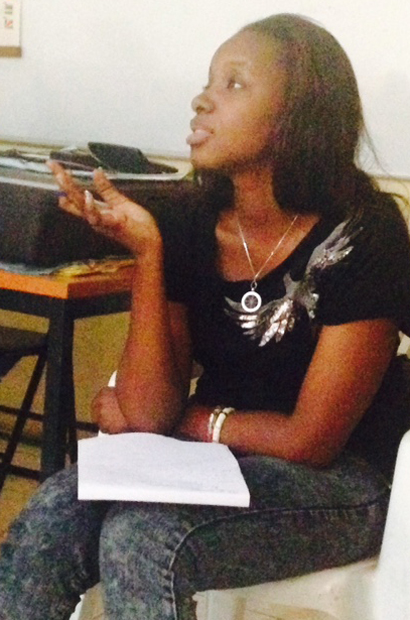
“My name is Merveille and I am 21. My father died when I was one and I live with my mother and two sisters. I am a La Pépinière girl researcher for the Gombe district of Kinshasa. I wanted to participate in this project because I am curious about our society and about the empowerment of young Congolese girls. The project also empowers my mind especially, which is important because changes start in our mind. I am convinced that research is an important factor in the development process.
"I like courage, dynamism, tolerance and compassion. Every day I develop my ambitions. I think in the future I’d like to set up my own business making desserts, snacks, natural juices and pastries. I do it already informally, but I am working on a strategy to grow the business. Socially, I want to launch a campaign to change mentalities by promoting understanding of legal texts. And I want to continue my studies and become a Professor of International Law.”

1 comment
Comment by Mary posted on
Very nice overall picture of Kinshasa girls, their needs, ambitions and potentials - there are so many! . Thanks Cleo